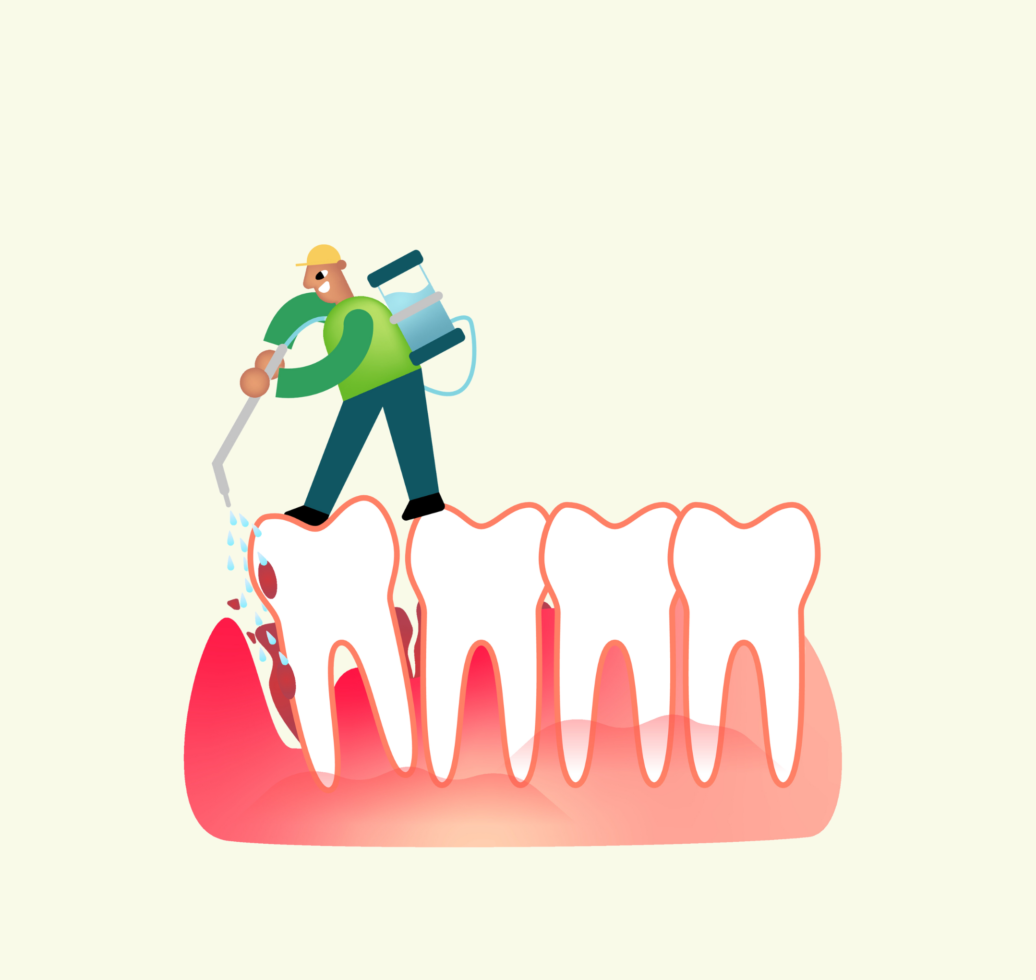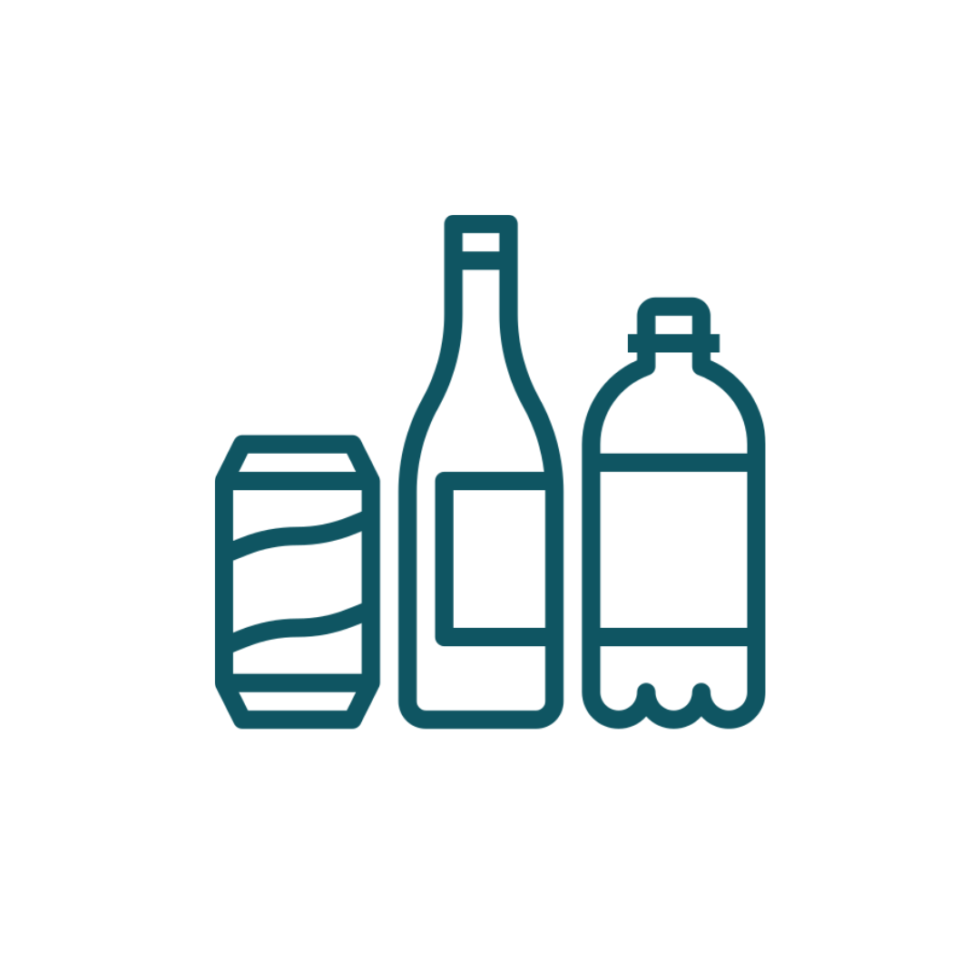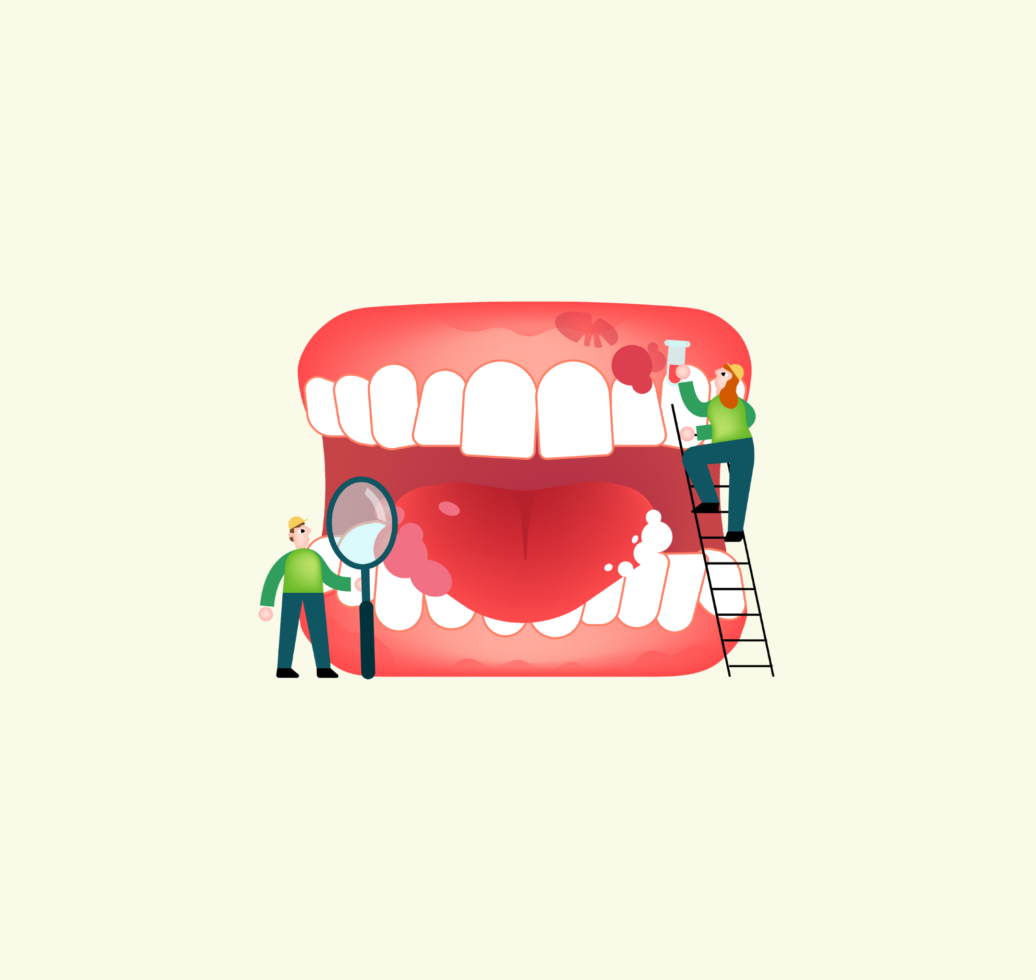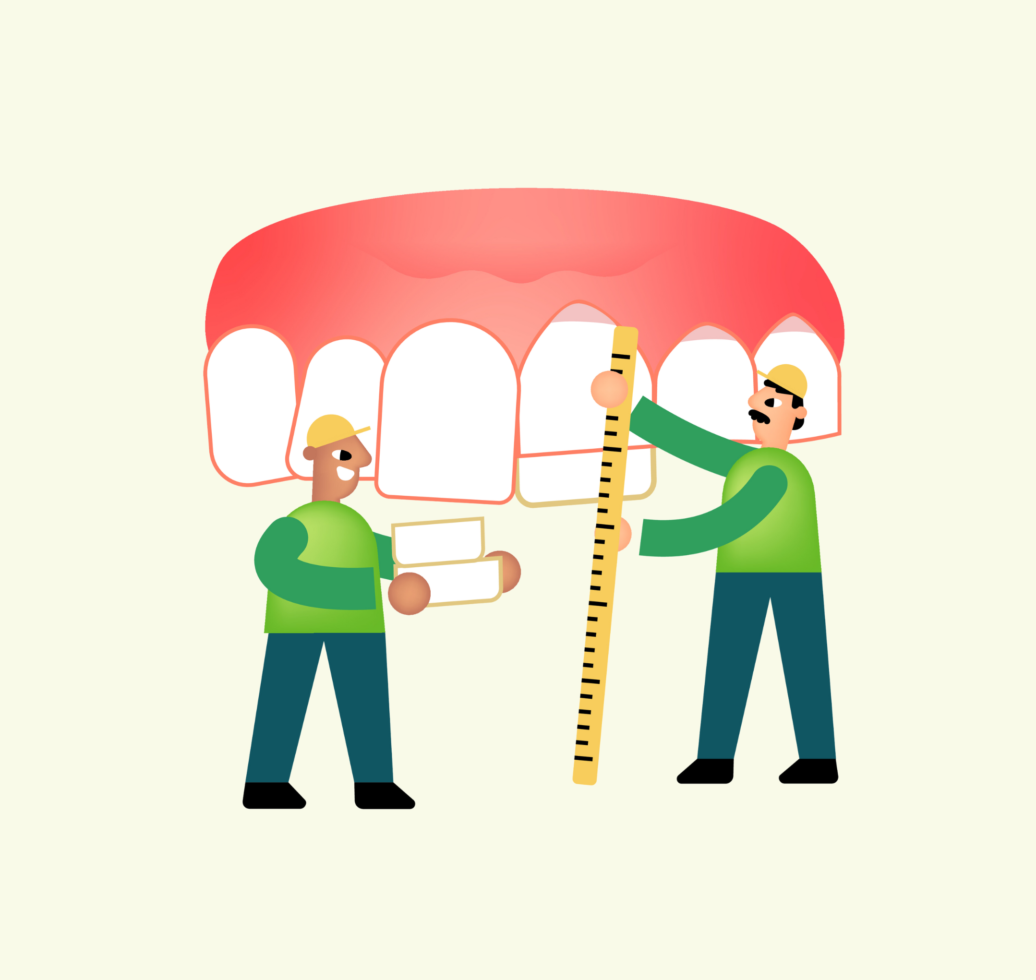Gingivitis and periodontitis: what are they?
Gingivitis and periodontitis are common but often overlooked oral problems. Gingivitis is an inflammation of the gums, often caused by dental hygiene. If left untreated, it can progress to periodontitis, a more severe inflammation that affects the tissues supporting the teeth, including the bone.
What happens if gingivitis goes untreated?
Gingivitis can lead to symptoms such as red, swollen and bleeding gums. Periodontitis, on the other hand, can cause loss of bone support, which can lead to tooth loss and have implications for overall health, linked to cardiovascular problems and other medical conditions.
Gingivitis is much more common than you might think.
Over 90% of the world’s population is affected by gingivitis at some point in their lives.
Everything you need to know about gingivitis :
How does the dentist treat gingivitis?
If gingivitis is detected, the dentist will perform a deep cleansing of the tissues around the tooth, allowing them to recover.
If the gingivitis is already at an advanced stage, microsurgery may be required to graft tissue from around the tooth. We can recommend a specialist directly.
If the gingivitis is at a less advanced stage, biostimulation may be all that’s needed to allow the tissues to regenerate.
How can I limit my risk of contracting gingivitis?
Here’s our advice:
- Effective brushing: Use a soft-bristled toothbrush twice a day, and adopt a gentle brushing technique to avoid irritating the gums.
- Flossing: Clean between teeth to remove food residues inaccessible to the brush.
- Antibacterial mouthwash: Use a mouthwash recommended by your dentist to reduce the bacteria responsible for inflammation.
- See your dentist regularly: Routine check-ups can detect and treat gingivitis at an early stage.
- Professional cleaning: Schedule regular descaling to remove plaque and scale build-up.
- Adopt a balanced diet: Limit sugars and acidic foods to reduce the risk of plaque formation.
When should I consult?
We recommend visiting your dentist at least once or twice a year, even if there are no apparent symptoms. However, when your gums start to bleed, or at the slightest sign of inflammation or swelling, it’s important to make an appointment with your dentist as soon as possible.







